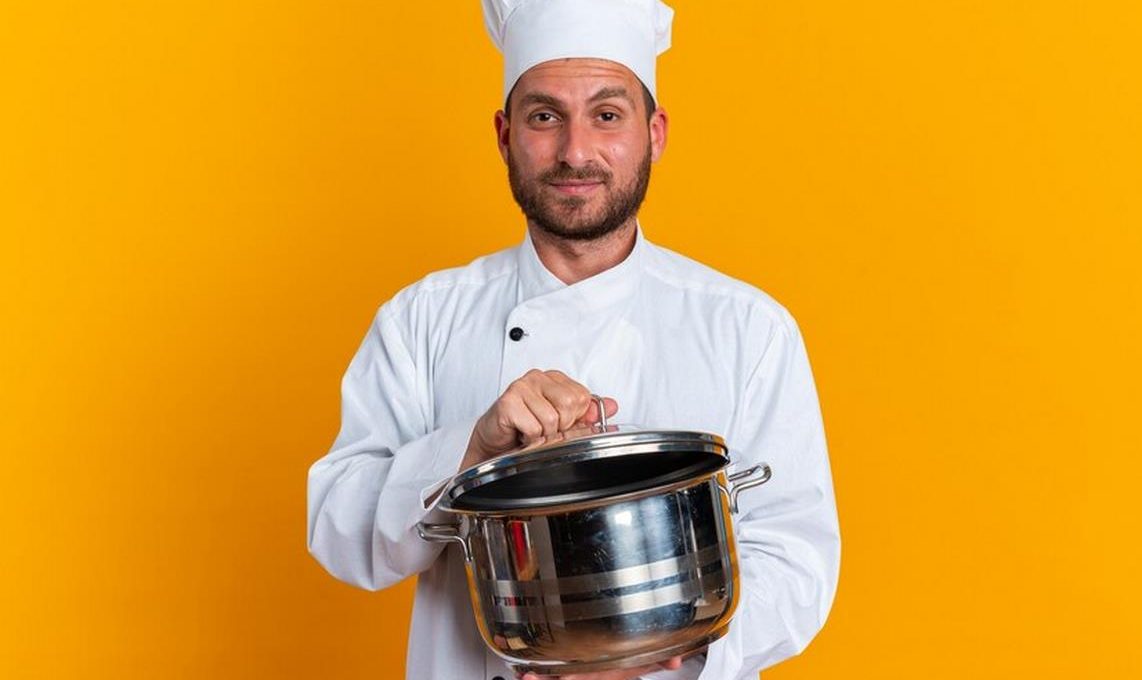Are you looking for tips on what not to do when cooking? Jamie’s Food Team has some great suggestions for cooking safety and health. Some common mistakes are overcooking and salting, using random ingredients, and leaving the kitchen unattended. If you follow these tips, you’ll have an easier time creating tasty dishes that will be a hit with your family. Read on to learn more. We’re all guilty of these mistakes, and the tips will help you avoid them.
Avoiding overcooking
Overcooked food is difficult to digest and can be tough and dry. It is better to remove overcooked food from the cooking surface and keep it warm for serving. The overcooking process also reduces the amount of vitamins and minerals that are found in the food. This is because most of the liquid is lost from the food. Overcooked meat is also more difficult to digest because the muscle fibers hold the water. In this situation, the chef may try to re-calibrate the cooking time.
Overcooked vegetables and meat are not as nutritious as those that are cooked in moderate amounts. Boiling vegetables depletes the nutrients and flavor in them. Instead, cook vegetables and meats using healthy cooking methods like braise, grilling, baking, and steaming. You can also choose to cook your meats in olive oil and butter to avoid the risk of reducing the nutrients. Overcooked meat also leads to wastage, so it is important to choose the right cooking method for your food.
Avoiding oversalting
When you are cooking, over-salting your food is a serious problem. There are a few ways to prevent over-salting. First of all, make sure to salt only the food that you are actually eating. If your dish is bland, you can try adding some sugar or vinegar to make it taste more palatable. Second, make sure to avoid salting your dishes when pregnant. If you aren’t pregnant, don’t worry! It’s genetically based.
Salting too much is a common kitchen mistake that you can easily fix. To prevent over-salting, you can simply remove half of the sauce and replace it with a salt-reduced liquid. Another easy fix is to add a high-fat liquid to the dish, like broth or milk. These liquids can dilute the salt, and therefore reduce the flavour. But if you have a difficult time cutting back on the salt in your cooking, try using a combination of both.
Second, you can try adding herbs and spices as seasoning. But you have to remember that you must saute your food first. Adding herbs and spices before the salt gets to the food is a great way to make a dish more flavorful. The best way to achieve a flavorless dish is to use moderate amounts of salt. Remember, it’s easier to add a little bit of salt than to take it away.
Third, you can try adding more fat, cheese, or cream to compensate for the salt in your dishes. You can also add some sugar or a simple syrup to compensate for the lack of flavor. Lastly, try soaking the potatoes in soup before serving. Using potatoes as a substitute for salt can help them absorb the extra salt. If the soup is not suitable for you, consider using potatoes. As a final option, you can even make a sour soup with a pinch of sugar.
Avoiding leaving the kitchen unattended
In the United States, the number one cause of fires and injuries in the home is a kitchen fire. In 2006, more than 125,000 home structure fires were directly attributable to cooking. These fires resulted in over 350 civilian deaths and tens of millions of dollars in damage. Leaving the kitchen unattended while cooking is a recipe for disaster. By using basic fire safety tips, you can avoid these deadly kitchen fires.
Most kitchen fires are caused by leaving food unattended. If you must leave the kitchen to do something else, turn off the stove or move pots and pans away from the stove. If possible, don’t leave children in the kitchen wearing loose clothes or long hair, because these can catch fire. Cooking is dangerous enough without putting yourself and your children in danger. To prevent kitchen fires, use the following tips when cooking:
The National Fire Protection Association reported that kitchen fires are the leading cause of home fires. In fact, nearly 156,000 home fires are directly related to cooking. And two out of every five fires in the home are caused by unattended cooking. In addition to the risk of fire, unattended cooking was the cause of 53 percent of all home cooking fire deaths in 2012.
If you must leave the kitchen while cooking, turn off the stove and leave it off. Cooking while tired or ill is dangerous. Even a few seconds can turn into an hour or more, and small flames can spread throughout the kitchen. This is why cooking should never be left unattended. You should never leave a stove unattended while cooking. You should also avoid leaving food unattended while you sleep, do the dishes, or do other tasks.
Avoiding random ingredients
Despite a common myth that different cuisines share the same ingredients, this research has found that some types of cooking recipes do not. A statistically significant tendency in Western European and North American cuisines is observed compared to the non-shared compounds in East Asian and Southern European dishes. This is captured by the Z-score, a measure of the statistical significance of DNs. This difference in recipe composition is a result of the systematic differences between the DNs in different regions and the observed number of compounds that are common across the two cuisines.
Avoiding flammable objects
A simple kitchen safety tip is to avoid storing flammable objects near your stove or stovetop. For example, don’t leave loose clothing lying around, which can ignite when the flames are too hot. Avoid using rags or plastic containers near heat sources, such as the stovetop. And remember to keep metal objects such as pans or toaster ovens far away from the burners. Never allow children to cook unsupervised, and make sure to keep flammable objects away from the stove or stovetop.
Aside from keeping combustible objects away from cooking appliances, keep kitchen surfaces clean. Remove curtains and other combustible materials that can ignite while cooking. You should also clean cooking surfaces on a regular basis to prevent grease and other substances from accumulating. Grease and oil from cooking can easily catch fire and smolder. To prevent kitchen fires, regularly clean your stovetop and oven. Clean them before you prepare a meal or host a party.
Another important safety tip is to keep children away from the stove. Children should stay at least three feet away from hot surfaces and be kept in another room. If they accidentally touch something on the stove, call an emergency room immediately or take them to a doctor. Do not give children tempting treats near hot stoves. Also, keep pot and pan handles turned inward and away from reach of small children. Similarly, it is important to avoid wearing loose clothing when cooking.
Aside from keeping flammable items away from your kitchen stove, you should also store fire extinguishers, baking soda, and metal lids near the stove. And don’t forget to be cautious when lighting the pilot light of your stove. Always use extra caution when using unfamiliar kitchen appliances. Also, be sure to keep your kitchen clean and free from flammable objects. You’ll want to stay safe this holiday season and throughout the year.
Podobne tematy




